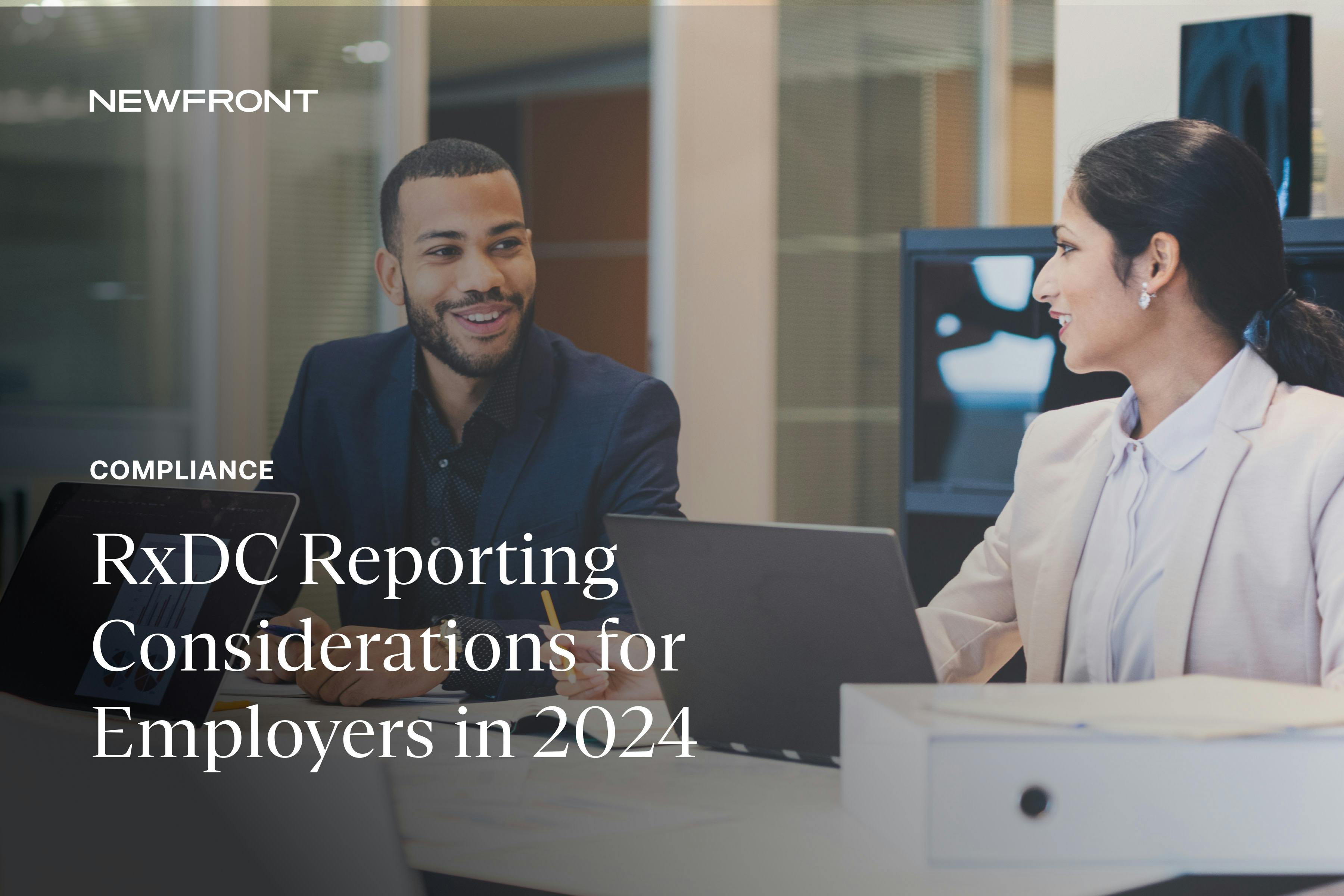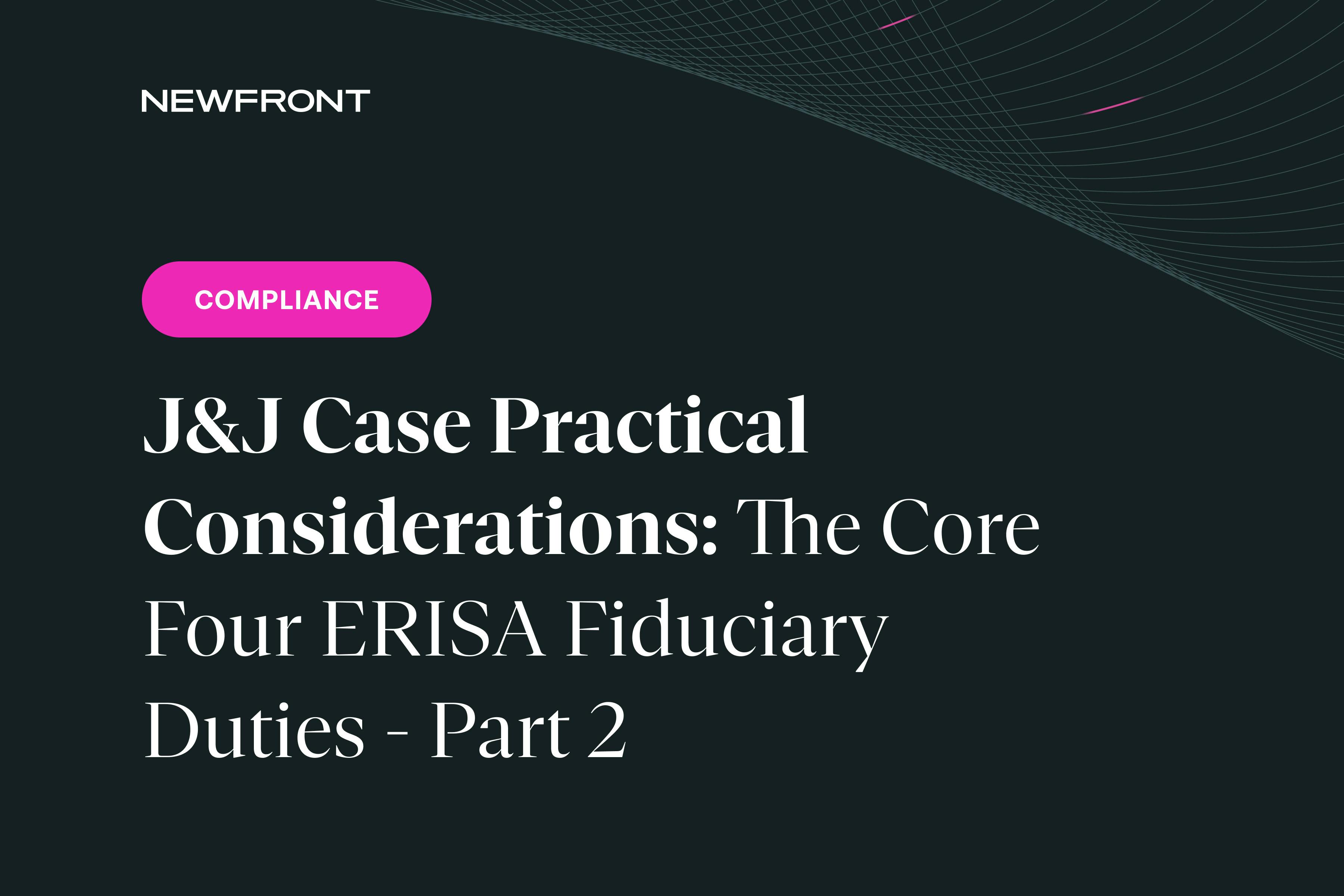Fall Health Plan Updates: New SF HCSO Amounts, Annual Legal Notices, and ACA
By Brian Gilmore | Published August 9, 2019
2020 San Francisco Health Care Security Ordinance (HCSO) Health Care Expenditure Rates
The San Francisco Office of Labor Standards Enforcement (OLSE) recently released the updated 2020 HCSO required health expenditure rates.
Under the HCSO, employers with 20 or more employees (50 or more for non-profits) in any quarter are required to make a minimum level of health care expenditures for certain employees performing work in San Francisco for that quarter.
The New 2020 Rates
The 2020 earnings exemption threshold for managerial, supervisorial, and confidential employees also increases to $104,761 for salaried employees or a $50.37 hourly rate. Note that earnings generally include commissions but not bonus or overtime amounts.
More information on all of these requirements is available on the OLSE’s HCSO website. Also, see our Newfront San Francisco Health Care Security Ordinance (HCSO) Guide for a complete overview of the HCSO requirements for employers.
More Fall Reminders
Medicare Part D: The Medicare Part D Notice of Creditable (or Non-Creditable) Coverage is due to employees by October 15. Employers frequently bundle this with other required annual notices, such as the CHIP and WHCRA notices.
Form 5500: The Form 5500 filing due date for calendar-year plans that filed that filed for the 2½-month extension is October 15.
ACA Reporting: It is not clear whether the IRS will again delay the applicable deadlines or continue the previous years’ good faith enforcement safe harbor. It is also not yet clear whether employers with self-insured plans will still need to complete Part III of the Form 1095-C, which is generally irrelevant for federal purposes after the TCJA’s effective repeal of the individual mandate in 2019.
ACA Premium Tax: The ACA health insurance premium tax for fully insured medical policies is scheduled to return in 2020—because the second one-year moratorium will expire at the end of 2019. The fee previously had a one-year moratorium in 2017, but it was back in effect for 2018. The tax is estimated to add 2.5% to 4% to the 2020 premium cost.
ACA Employer Mandate Penalties: The 2020 annualized ACA employer mandate pay or play penalties are projected to be $2,570 (the Section 4980H(a) “A Penalty”) and $3,860 (the Section 4980H(b) “B Penalty”). The IRS has not even formally updated the current 2019 penalty amounts, but projections are that the current 2019 A Penalty is $2,500 and the B Penalty is $3,750.
ACA Pay or Play Affordability: The 2020 affordability safe harbor percentage will decrease from 9.86% to 9.78%. This sets the 2020 federal poverty line affordability safe harbor at a $101.79 maximum monthly employee-share of the premium for the lowest-cost plan option at the employee-only tier.
Links to Required Annual Notices
Many employers prefer to provide employees with online access to the annual notice materials. Here is a sample email that employers can use for that purpose:
2020 Health Plan Annual Notices
The Company is required by applicable law to provide you with certain notices each year that inform you of your rights and our responsibilities with respect to the Company’s health plan (the “Plan”).
Please carefully review the information contained below and share it with your covered dependents. We suggest you keep this information with your Summary Plan Description (“SPD”) for future reference.
[Company’s Plan Provides Part D Creditable Coverage]
[Company’s Plan DOES NOT Provide Part D Creditable Coverage]
In the event of a conflict between the official Plan Document and these legal notices, the SPD, or any other communication related to the Plan, the official Plan Document will govern.
If you have any questions or would like to obtain a paper version of these notices, please contact the HR Department.

Brian Gilmore
Lead Benefits Counsel, VP, Newfront
Brian Gilmore is the Lead Benefits Counsel at Newfront. He assists clients on a wide variety of employee benefits compliance issues. The primary areas of his practice include ERISA, ACA, COBRA, HIPAA, Section 125 Cafeteria Plans, and 401(k) plans. Brian also presents regularly at trade events and in webinars on current hot topics in employee benefits law.
Connect on LinkedIn

